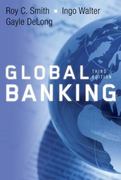Answered step by step
Verified Expert Solution
Question
1 Approved Answer
Compounding Period Problems 4. Your bank offers a 4-year certificate of deposit at a 12% interest rate compounded quarterly. Determine how much additional interest you


Step by Step Solution
There are 3 Steps involved in it
Step: 1

Get Instant Access to Expert-Tailored Solutions
See step-by-step solutions with expert insights and AI powered tools for academic success
Step: 2

Step: 3

Ace Your Homework with AI
Get the answers you need in no time with our AI-driven, step-by-step assistance
Get Started


